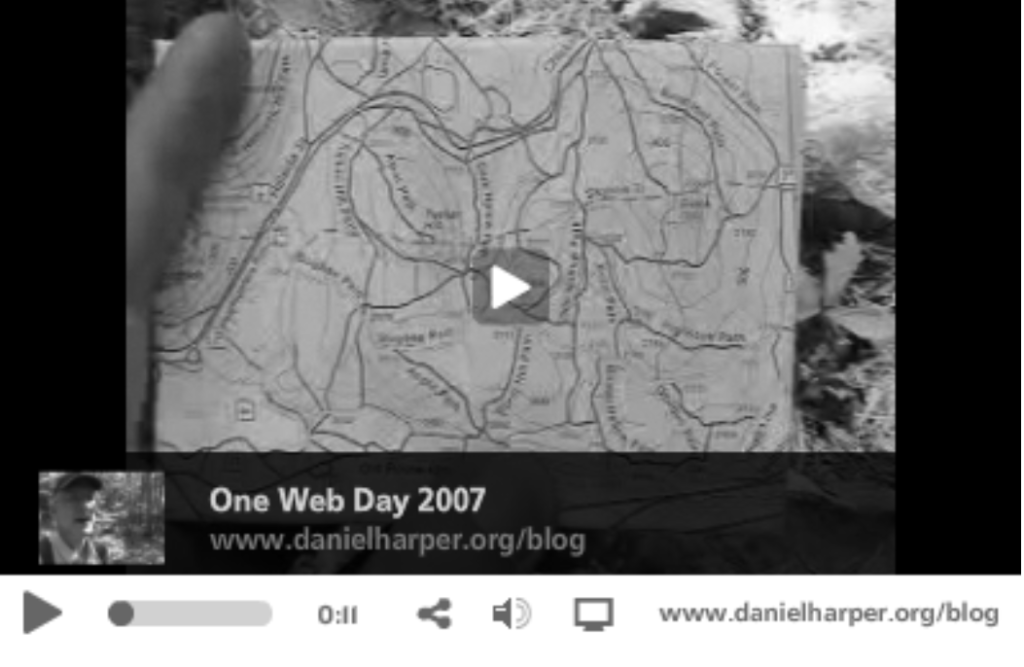Let’s see if I can make some loose connections between a few things — just sort of thinking out loud….
In the past forty years, the main stream of conversation for academics and intellectuals interested in the humanities has meandered away from the narrow confines of the established Western canon, and gone off on multiple tangents. Those of us who are willing to admit to being intellectuals are no longer satisfied with reading books by DWMs (Dead White Men) — we’ve gotten fascinated by books written by women and persons of color, we’re reading books that were once only of local interest, and we’re looking in to folk literature and oral history and other, less fixed, media.
We’re meandering through a tremendously exciting intellectual landscape. Instead of just reading Walden, Nature, and The Scarlet Letter, we can read Frederick Douglass’s Narrative and discover that it is just as good a book as those old standbys from the old American Renaissance canon. Instead of just reading Henry James, we find out that Sarah Orne Jewett was pretty darn good in her own right, and less ponderous than James. We still keep an eye on the great classics — Shakespeare and the King James Bible still tower above the rest of the literary landscape as the tallest mountains — but we’ve discovered that we don’t need to spend all our time climbing Mount Everest when there are many other equally interesting mountains and hills right in our own backyards (as it were) to explore.
And somehow this all connects with what I’ve been feeling about Western theology. I know I should be interested in reading Thomas Aquinas and Kant and (because I’m a religious liberal) Schleiermacher. But I’m far more interested in learning about Mary Rotch, a New Light Quaker who was read out of New Bedford Friends Meeting in the 1820’s for her liberal views, who joined the New Bedford Unitarian church, and who apparently had a profound influence of Emerson. As a Quaker, she didn’t prepare written sermons, but some of her vocal ministry apparently was recorded, and now I’m trying to track that down. She was no Thomas Aquinas, she wasn’t even a George Fox, but what she had to say deeply influenced many people here in New Bedford, and through her influence on Emerson her ideas spread even farther afield.
It’s a truism in certain circles to say that all theology is local theology. Local theology is the intersection of a religious tradition in on elocality, its local history, its place in a wider religious community or network, and the lives of the people in that religious community along with the lives of others in that region. Schleiermacher natters away to the cultured despisers of religion (read: upper middle class) about how religion is just symbolic; Aquinas and Kant spin their ontological fantasies about the nature of God and the ground of morals; and all the while, other people are actually living out religion and creating theology through the way they live their lives. I’m much more interested in local theology than the theology of academics and DWMs.
So when someone says to me, “Do you believe in God?” I want to respond flippantly, “Depends on where I am,” or more seriously, “Do you mean the God of the academics, or the God which may or may not manifest in the lives of people living in New Bedford?” Because when people talk about God in New Bedford, they tend to mean something different than the God I heard talked about in Geneva, Illinois (in Geneva, God does not bless the fishing fleet each year) — to say nothing of the fact that those who disbelieve in God in New Bedford disbelieve in a different God than those who disbelieve in God in Geneva, Illinois. And we can distinguish an even finer grain than that, for Unitarian Universalists in New Bedford believe or disbelieve in God in different ways than Unitarian Universalists in Geneva, Illinois.
As I said, I’m just thinking out loud here. Maybe some day I’ll make some sense out of what I’m trying to say.


